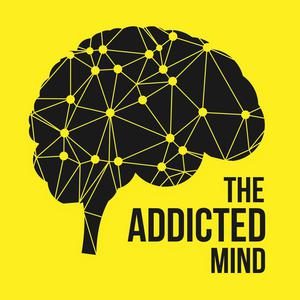
The Addicted Mind Podcast
Duane Osterlind, LMFT
Understanding Addiction Research, Treatment And Recovery
- 45 minutes 17 seconds317: Harnessing Digital Tools and Peer Support for Lasting Change with Judson Brewer
Dr. Judson Brewer, a pioneering neuroscientist and addiction specialist, takes us on an exploration of the human brain and its role in addiction and recovery. Dr. Brewer shares his personal journey from medical school to co-founding MindShift Recovery, where evidence-based programs challenge traditional treatments. Drawing from Buddhist psychology, he offers a fresh perspective on addictive behaviors, emphasizing the transformative power of understanding the brain's mechanisms to foster lasting change.
Curiosity emerges as a powerful force in changing habitual behaviors, offering an alternative to sheer willpower. Discover how paying attention to the real-time outcomes of habits like smoking or overeating can shift brain chemistry and leverage the orbitofrontal cortex to reassess reward values. Through mindful attention, individuals can become disenchanted with detrimental behaviors by viscerally experiencing past consequences and predicting future outcomes. This understanding helps reduce the likelihood of repeating undesirable actions, guiding individuals toward more informed and positive choices.
In this episode, you will hear:
- Exploration of addiction and recovery through brain science with Dr. Judson Brewer.
- Dr. Brewer's journey and the founding of MindShift Recovery.
- Introduction to the concept of curiosity as a tool for changing addictive behaviors.
- Analysis of the brain's orbitofrontal cortex in reassessing the reward value of habits.
- Use of digital therapeutics and peer support in addiction recovery.
- Disenchantment and resilience in behavior change.
- Proactive strategies for reinforcing positive choices and well-being.
Follow and Review:
We’d love for you to follow us if you haven’t yet. Click that purple '+' in the top right corner of your Apple Podcasts app. We’d love it even more if you could drop a review or 5-star rating over on Apple Podcasts. Simply select “Ratings and Reviews” and “Write a Review” then a quick line with your favorite part of the episode. It only takes a second and it helps spread the word about the podcast.
Supporting Resources:
https://www.mindshiftrecovery.org/
https://www.mindshiftrecovery.org/about-mindshift-recovery
Instagram: https://www.instagram.com/mindshiftrecovery/
LinkedIn: https://www.linkedin.com/company/mindshift-recovery
Episode Credits
If you like this podcast and are thinking of creating your own, consider talking to my producer, Emerald City Productions. They helped me grow and produce the podcast you are listening to right now. Find out more at https://emeraldcitypro.com Let them know we sent you.
Learn more about your ad choices. Visit megaphone.fm/adchoices
20 January 2025, 9:00 am - 21 minutes 10 secondsTAM+ Episode 52: Master Your Triggers: Rewiring Your Brain for Recovery
Have you ever felt like your emotions or memories suddenly hijack your hard-earned progress in recovery? You're not alone! In this episode of The Addicted Mind, hosts Duane and Eric Osterlind delve deep into the world of triggers, those sneaky culprits that can either strengthen or challenge our recovery journey.
Discover the four main categories of triggers: environmental, emotional, physical, and cognitive, and learn how to identify and navigate them effectively. Duane and Eric share the groundbreaking AWARE method, a powerful tool to help you accept, watch, act, repeat, and expect when facing triggers.
Plus, find out how to create your own trigger map and build a personalized response toolkit to transform your relationship with triggers from one of fear and reactivity to one of awareness and growth.
Tune in and gain the knowledge and skills to master your triggers and pave the way for lasting transformation!
Download The Worksheet: UNDERSTANDING YOUR TRIGGERS: A COMPREHENSIVE WORKSHEET
Key Takeaways
- Understanding the four categories of triggers: environmental, emotional, physical, and cognitive.
- The AWARE method: a powerful tool to manage triggers effectively.
- Creating a trigger map to identify personal triggers and patterns.
- Building a response toolkit with personalized strategies for each type of trigger.
- Transforming your relationship with triggers from fear to awareness and growth.
Timestamps
- [00:00:00] Introduction
- [00:02:55] What are triggers?
- [00:04:49] The trigger gap
- [00:07:19] Four categories of triggers
- [00:11:38] The AWARE method
- [00:14:13] Creating a trigger map
Episode Credits
If you like this podcast and are thinking of creating your own, consider talking to my producer, Emerald City Productions. They helped me grow and produce the podcast you are listening to right now. Find out more at https://emeraldcitypro.com Let them know we sent you.
Follow and Review: We’d love it even more if you could drop a review or 5-star rating over on Apple Podcasts. Simply select “Ratings and Reviews” and “Write a Review” then a quick line with your favorite part of the episode. It only takes a second and it helps spread the word about the podcast.
Supporting Resources:
If you live in California and are looking for counseling or therapy please check out Novus Mindful Life Counseling and Recovery Center
We want to hear from you. Leave us a message or ask us a question: https://www.speakpipe.com/addictedmind
Learn more about your ad choices. Visit megaphone.fm/adchoices
16 January 2025, 8:00 am - 39 minutes 30 seconds316: Addressing Adolescent Addiction: Insights on E-Cigarettes, Vaping, and Mental Health with Dr. Bonnie Halpern-Felsher
Join us as we welcome Dr. Bonnie Halpern-Felsher from Stanford University, an esteemed expert in adolescent health, who brings her wealth of knowledge to our conversation on the Addicted Mind Podcast. We focus on the heightened sensitivity of the adolescent brain to addiction, particularly when it comes to substances like nicotine and THC found in e-cigarettes and vaping. Dr. Halpern-Felsher shares her groundbreaking research and advocacy efforts, stressing the necessity of addressing these issues during this critical phase of brain development. Her insights empower teens to make informed decisions about their health and future.
Our discussion takes a close look at the complex web of factors influencing youth addiction, including the impact of stress, societal pressures, and the pervasive reach of social media. We delve into how these elements drive adolescents toward substance use as a coping mechanism, often facilitated by the enticing marketing of e-cigarettes. Despite being aware of the risks, many young people are drawn to these substances for the perceived relief they offer. We highlight the urgent need for proactive education and parental support to help teens navigate these challenges and understand the long-term implications of their choices.
In this episode, you will hear:
- Dr. Bonnie Halpern-Felsher discusses adolescent brain development and its vulnerability to addiction.
- The influence of nicotine and THC on young minds through e-cigarettes and vaping.
- The role of stress, societal pressures, and social media in driving youth addiction.
- The deceptive marketing tactics of e-cigarette companies targeting young people.
- Challenges and strategies for quitting nicotine, including the importance of supportive environments.
- The concerning link between high THC usage, social media, and mental health issues like psychosis.
Follow and Review:
We’d love for you to follow us if you haven’t yet. Click that purple '+' in the top right corner of your Apple Podcasts app. We’d love it even more if you could drop a review or 5-star rating over on Apple Podcasts. Simply select “Ratings and Reviews” and “Write a Review” then a quick line with your favorite part of the episode. It only takes a second and it helps spread the word about the podcast.
Supporting Resources:
Episode Credits
If you like this podcast and are thinking of creating your own, consider talking to my producer, Emerald City Productions. They helped me grow and produce the podcast you are listening to right now. Find out more at https://emeraldcitypro.com Let them know we sent you.
Learn more about your ad choices. Visit megaphone.fm/adchoices
13 January 2025, 9:00 am - 18 minutes 13 secondsTAM+ Episode 51: Breaking Free: Understanding Your True Sphere of Control
Ever lie awake at night, desperately trying to force yourself to sleep, only to find yourself more awake than ever? This common experience reveals a fascinating paradox about control in our lives. In this transformative episode, hosts Duane and Eric Osterlind explore why our attempts to control certain aspects of life often backfire, leading to increased anxiety and stress. Through compelling research and practical insights, they reveal how understanding the difference between what we can and cannot control becomes a gateway to peace and personal power.
Learn why accepting what we cannot control paradoxically leads to better outcomes and discover practical strategies for channeling your energy where it truly matters. This episode offers a refreshing perspective on personal control that can revolutionize your approach to relationships, recovery, and daily challenges.
Download: The Sphere of Control Worksheet
Click Here to Join the TAM + Community. Get the support you need.
Our Deep Dive is now in the community, where we discuss this episode in deep dive
Key Topics:
• The paradox of control and its impact on mental well-being
• Understanding the three spheres of control: direct control, influence, and no control
• The science behind acceptance-based approaches to personal growth
• Practical strategies for redirecting energy toward what you can control
• The relationship between radical acceptance and emotional freedom
• How to develop wisdom in letting go without resignation
Key Timestamps:
[00:01:10] Introduction to the struggle with control
[00:04:11] Research study on sleep and thought suppression
[00:08:00] Explanation of the three spheres of control
[00:10:53] Identifying where you're spending energy unnecessarily
[00:12:21] Understanding radical acceptance
[00:13:44] Navigating the challenges of letting go
[00:14:18] Community resources and next steps
Episode Credits
If you like this podcast and are thinking of creating your own, consider talking to my producer, Emerald City Productions. They helped me grow and produce the podcast you are listening to right now. Find out more at https://emeraldcitypro.com Let them know we sent you.
Follow and Review: We’d love it even more if you could drop a review or 5-star rating over on Apple Podcasts. Simply select “Ratings and Reviews” and “Write a Review” then a quick line with your favorite part of the episode. It only takes a second and it helps spread the word about the podcast.
Supporting Resources:
If you live in California and are looking for counseling or therapy please check out Novus Mindful Life Counseling and Recovery Center
We want to hear from you. Leave us a message or ask us a question: https://www.speakpipe.com/addictedmind
Learn more about your ad choices. Visit megaphone.fm/adchoices
9 January 2025, 8:00 am - 35 minutes 55 seconds315: Unmasking Kratom: Decima Davis's Journey from Addiction to Advocacy
Decima Davis once believed she had found a miracle in Kratom—a natural supplement that seemed to promise relief from her battles with opioid withdrawal. She wasn't alone in her hope; many, like Decima, were drawn to Kratom during the opioid crisis, fooled by its marketing as a safer alternative. But Decima's story took a different turn, and today, as the founder of the Quitting Kratom Support Organization, she reveals the hidden dangers of Kratom addiction. Her candid account sheds light on the physical and psychological toll of this unregulated substance while offering a beacon of hope and resilience to those in similar struggles.
Join us for an eye-opening conversation about the rise of Kratom in America and the misconceptions that have made it a popular yet perilous choice. We'll explore Decima's journey to sobriety, highlighting the critical role of community support, therapy, and self-work in overcoming addiction. Through her story, we emphasize the transformative power of recovery and the profound joy that lies in facing addiction head-on.
In this episode, you will hear:
- Decima Davis's journey from Kratom addiction to advocacy
- Misconceptions and hidden dangers of Kratom as an opioid alternative
- Physical and psychological impacts of Kratom dependency
- Importance of community support and therapy in recovery
- Rise of Kratom use in America amid the opioid crisis
Follow and Review:
We’d love for you to follow us if you haven’t yet. Click that purple '+' in the top right corner of your Apple Podcasts app. We’d love it even more if you could drop a review or 5-star rating over on Apple Podcasts. Simply select “Ratings and Reviews” and “Write a Review” then a quick line with your favorite part of the episode. It only takes a second and it helps spread the word about the podcast.
Supporting Resources:
Episode Credits
If you like this podcast and are thinking of creating your own, consider talking to my producer, Emerald City Productions. They helped me grow and produce the podcast you are listening to right now. Find out more at https://emeraldcitypro.com Let them know we sent you.
Learn more about your ad choices. Visit megaphone.fm/adchoices
7 January 2025, 9:00 am - 19 minutes 53 secondsTAM+ 50: The 4 Essential Boundaries That Will Transform Your Recovery Journey
Are you constantly saying "yes" to everyone else's needs while your recovery takes a backseat? In this eye-opening episode of The Addicted Mind Plus, host Duane Osterlind and Eric Osterlind dive deep into the four fundamental types of boundaries that can revolutionize your recovery journey. Many people struggle with feeling selfish about setting boundaries, but as this episode reveals, boundaries aren't just about saying "no" – they're about creating a protective space where your healing can flourish.
The hosts break down each type of boundary – physical, emotional, intellectual, and time – providing practical examples and real-world applications. They explore how these boundaries work together to create a strong foundation for long-term recovery success. Whether you're dealing with maintaining sobriety, protecting your personal space, or managing relationships, this episode offers clear, actionable insights for setting and maintaining healthy boundaries.
The discussion includes practical tips for implementing these boundaries in daily life, along with strategies for overcoming the guilt that often accompanies boundary-setting. The hosts also share how joining a supportive community can help strengthen your boundary-setting skills and enhance your recovery journey.
Download: The 4 Essential Boundaries Worksheet
Click Here to Join the TAM + Community. Get the support you need.
Our Deep Dive is now in the community, where we discuss this episode in depth and help each other complete each worksheet.
Key Topics
- Understanding the difference between physical, emotional, intellectual, and time boundaries
- Why setting boundaries isn't selfish and actually helps relationships flourish
- How to protect your recovery space without feeling guilty
- The importance of community support in maintaining boundaries
- Practical steps for implementing boundaries in daily life
Timestamps
[00:00:54] Introduction to the four types of boundaries in recovery
[00:04:54] Exploring physical boundaries and personal space
[00:06:41] Understanding emotional boundaries and their importance
[00:09:00] Discussion of intellectual boundaries and respect
[00:11:44] Managing time boundaries in recovery
[00:14:15] Practical steps for implementing boundaries
[00:16:01] Community support and resources
Learn more about your ad choices. Visit megaphone.fm/adchoices
2 January 2025, 8:10 am - 32 minutes 31 secondsEpisode 314: Melting The Ice Cube - EMDR & Trauma with Kay Simmeth
On this episode of The Addicted Mind podcast, my guest is Kay Simmeth, a Marriage and Family Therapist certified in EMDR. Eye movement desensitization and reprocessing is a type of bilateral stimulation that activates both sides of the body and both sides of the brain. This dual action process of tapping on the client’s knees back and forth, listening to music or sounds that alternate between headphones, or feeling vibrations in alternating hands, the frontal cortex and the amygdala are both activated, which allows the client to access the portion of the brain where the trauma is stored and then shift those negative beliefs or cognitions to positive beliefs.
Without being able to access both sides of the brain simultaneously, the client will just continue to feel the negative beliefs related to the trauma and not be able to go any further by consciously and logically thinking about the situation. Doing so through the 8-phase process of EMDR allows the client to “melt” the trauma so that they can still access the memory of the trauma, but the intensity of their emotions and reactions about the trauma become less immediate and significant. The trauma simply becomes an “event” in their lives rather than something that impacts everything they experience. Going through EMDR takes the emotional weight out of the memory in the present and frees the client up for a brighter future.
Kay uses EMDR with 98% of her patients and she has found that the changes her clients exhibit stick more than with other techniques. Through this type of adaptive information processing model, the length of time or number of sessions that the client needs to go through EMDR depends on the proximity, length, and depth of the trauma in their life, but all clients will see change along the way.
Kay’s advice to those experiencing trauma is to remember that they do not have to go through it alone and that there are plenty of resources for them to seek help.
Episode Credits
If you like this podcast and are thinking of creating your own, consider talking to my producer, Emerald City Productions. They helped me grow and produce the podcast you are listening to right now. Find out more at https://emeraldcitypro.com Let them know we sent you.
Follow and Review: We’d love it even more if you could drop a review or 5-star rating over on Apple Podcasts. Simply select “Ratings and Reviews” and “Write a Review” then a quick line with your favorite part of the episode. It only takes a second and it helps spread the word about the podcast.
Supporting Resources:
If you live in California and are looking for counseling or therapy please check out Novus Mindful Life Counseling and Recovery Center
We want to hear from you. Leave us a message or ask us a question: https://www.speakpipe.com/addictedmind
Learn more about your ad choices. Visit megaphone.fm/adchoices
30 December 2024, 8:00 am - 42 minutes313: REBROADCAST: How the Inner Child Impacts Your Sexual Addiction with Eddie Capparucci
When dealing with addiction, whether you’re addicted to alcohol, drugs, porn, food, or whatever it is, one of the most effective ways to achieve recovery is by going all the way back to your inner child and figuring out what triggers your pain points so you can eventually take mindful action.
Author and licensed professional counselor, Eddie Capparucci, who specializes in the treatment of sex and pornography addiction, created the inner child recovery process to help people struggling with addiction.
A Vicious Cycle
When you start to feel that ugliness within you and you start to say how disgusting you are, that just keeps you in the cycle. You go back to your addiction in order to forget and not feel. And that’s the biggest problem.
One of the keys to dealing with sexual pornography addiction, or any addiction for that matter, is learning how to sit with that emotional pain, feel it, and understand that it’s not going to kill you no matter how uncomfortable it is.
The Impact of Childhood on Trauma
For instance, when you have a sense of abandonment, there’s fear that people or whoever you bring into your life, are not going to wind up staying, whether they discovered there’s something about you that’s unlovable, or they’re just not reliable people.
There is fear that lives underneath the surface that you try to protect yourself against that fear by keeping people at a distance. And so, you begin to build a wall even with people you become involved with romantically.
You’re not going to let them get close to you because if you do, you give them the power to hurt you by leaving. But then if you have a wall up and you don’t let them get that close to you, and if in the event they leave you, then it’s okay because you can always replace them.
The Inner Child Process
The inner child process allows people to go deeper so they can identify the emotional childhood pain points that are still being activated today. It provides insight and it helps men understand why they engage in their addictive behaviors. Then they’re able to stay one step ahead of their addiction by identifying the core emotional triggers that activate their inner child.
What are the nine different kinds of the inner child?
- The Bored Child
- The Unaffirmed Child
- The Unnoticed Child
- The Emotionally Void Child
- The Lack-of-Control Child
- The Entitled Child
- The Inferior-Weak Child
- The Stressed Child
- The Sexually Early/Stimulated/Abused Child
In the inner child recovery process, they look at each kind to see which ones they identify with. By recognizing the childhood pain points, they would now understand the triggers that activate those pain points. Then the next step is mindfulness.
Supporting Resources:
Episode Credits
If you like this podcast and are thinking of creating your own, consider talking to my producer, Emerald City Productions. They helped me grow and produce the podcast you are listening to right now. Find out more at https://emeraldcitypro.com Let them know we sent you.
Learn more about your ad choices. Visit megaphone.fm/adchoices
23 December 2024, 9:00 am - 19 minutes 1 secondTAM+ Episode 49: "Breaking Down Walls: The Healing Power of Self-Disclosure in Recovery"
Ever feel like you're carrying a secret that's too heavy to share? In this powerful episode of The Addicted Mind Plus, hosts Duane and Eric Osterlind explore why sharing our authentic stories is crucial for lasting recovery. They dive into how keeping parts of ourselves hidden can actually deepen our isolation, while taking careful steps to share with trusted others can create profound healing. Drawing from the wisdom of pioneering psychotherapist Carl Rogers, they discuss how genuine connection and unconditional acceptance can transform recovery from a lonely journey into a shared path of growth. The hosts offer practical strategies for breaking down the walls of shame and secrecy, while emphasizing the importance of choosing safe people and spaces for self-disclosure. Whether you're in recovery or supporting someone who is, this episode provides valuable insights into building the authentic connections that make lasting change possible.
Download: Self-Disclosure in Recovery Worksheet
Click Here to Join the TAM + Community. Get the support you need.
Our Deep Dive is now in the community, where we discuss this episode in deep
Key Topics:
- Understanding the relationship between isolation and addiction
- The role of unconditional positive regard in healing
- How to identify safe people for self-disclosure
- Practical steps for sharing your story
- The importance of starting small with vulnerability
- Using journaling to explore sharing readiness
- Creating a self-disclosure plan
Timestamps
[00:01:04] Introduction to self-disclosure and authentic connection
[00:02:00] The impact of keeping secrets in recovery
[00:04:08] Carl Rogers' insights on understanding and acceptance
[00:08:35] Practical steps for building vulnerability
[00:11:55] Understanding your comfort level with sharing
[00:13:21] Journaling prompts for self-reflection
[00:14:30] The power of community in recovery
Follow and Review: We’d love it even more if you could drop a review or 5-star rating over on Apple Podcasts. Simply select “Ratings and Reviews” and “Write a Review” then a quick line with your favorite part of the episode. It only takes a second and it helps spread the word about the podcast.
Supporting Resources:
If you live in California and are looking for counseling or therapy please check out Novus Mindful Life Counseling and Recovery Center
We want to hear from you. Leave us a message or ask us a question: https://www.speakpipe.com/addictedmind
Learn more about your ad choices. Visit megaphone.fm/adchoices
19 December 2024, 8:00 am - 40 minutes 24 seconds312: Resilience and Redemption in the Written Word with Aaron Perra
At the age of 15, Aaron Perra took his first drink, setting off a chain of events that would lead him through the tumultuous landscape of addiction and ultimately to the healing power of poetry. On the Addicted Mind Podcast, Aaron opens up about his struggles with identity, family rejection, and homelessness during his teenage years in Minneapolis. Each setback became a stepping stone, as he found sanctuary in a 12-step program and support from Minneapolis' Youth Links, which helped him pursue a career in cosmetology and discover his passion for poetry.
Aaron shares the heart-wrenching journey of battling meth addiction, the challenges of codependency, and how a heartfelt intervention by a dear friend became the catalyst for change in July 2022. His path to recovery was marked by a network of supportive individuals who provided the community and encouragement he needed to embrace sobriety. The turning point in Aaron's life illustrates the profound impact of genuine connection and unwavering support, reminding listeners of the pivotal role that community plays in overcoming adversity.
In this episode, you will hear:
- Aaron Perra's journey from addiction to recovery through poetry
- Struggles with identity, family rejection, and homelessness
- Impact of a 12-step program and community support in recovery
- Battle with meth addiction and the role of codependency
- Poetry as a lifeline and creative outlet during recovery
- Publication of "Triggers in Love" and the importance of community support
Follow and Review:
We’d love for you to follow us if you haven’t yet. Click that purple '+' in the top right corner of your Apple Podcasts app. We’d love it even more if you could drop a review or 5-star rating over on Apple Podcasts. Simply select “Ratings and Reviews” and “Write a Review” then a quick line with your favorite part of the episode. It only takes a second and it helps spread the word about the podcast.
Supporting Resources:
https://www.amazon.com/TRIGGERS-LOVE-Poetry-Aaron-Joshua/dp/B0CGYVW93J
https://www.instagram.com/aaron_joshua_perra/
Episode Credits
If you like this podcast and are thinking of creating your own, consider talking to my producer, Emerald City Productions. They helped me grow and produce the podcast you are listening to right now. Find out more at https://emeraldcitypro.com Let them know we sent you.
Learn more about your ad choices. Visit megaphone.fm/adchoices
16 December 2024, 9:00 am - 18 minutes 8 secondsTAM+ Episode 48: Breaking Free: How Toxic Relationships Threaten Your Recovery
Have you ever left a conversation feeling completely drained, questioning yourself, or worse – thinking about relapsing? You're not alone. In this powerful episode of The Addicted Mind Plus, Duane Osterlind tackles the crucial but often overlooked aspect of recovery: managing toxic relationships. Through a compelling case study of a woman six months into her sobriety journey, Osterlind reveals how seemingly supportive family members can unknowingly threaten our recovery with subtle comments and behaviors. He dives into the science behind how relationships affect our physical health, from our heart function to our immune system, and provides practical tools for identifying and managing toxic relationships in recovery. Whether you're in recovery or supporting someone who is, this episode offers valuable insights into creating a healthier support system for long-term sobriety.
Download: Toxic Relationships Worksheet
Click Here to Join the TAM + Community. Get the support you need.
Our Deep Dive is now in the community, where we discuss this episode in deep dive
Key Topics:
• Physical and emotional impacts of toxic relationships on recovery
• Scientific evidence linking relationship quality to physical health
• Signs of toxic relationships and how to identify them
• Three strategies for managing toxic relationships
• The importance of boundaries in recovery
• How to evaluate your current relationships
• Building a supportive network for recovery
Timestamps:
[00:01:24] Opening question about exhausting conversations and recovery
[00:02:15] Case study of client struggling with family relationships
[00:04:11] Science behind relationships and physical health
[00:06:39] How to identify toxic relationships
[00:09:32] Three main strategies for handling toxic relationships
[00:11:13] Practical exercise for evaluating relationships
[00:13:12] Resources and action steps for listeners
Episode Credits
If you like this podcast and are thinking of creating your own, consider talking to my producer, Emerald City Productions. They helped me grow and produce the podcast you are listening to right now. Find out more at https://emeraldcitypro.com Let them know we sent you.
Follow and Review: We’d love it even more if you could drop a review or 5-star rating over on Apple Podcasts. Simply select “Ratings and Reviews” and “Write a Review” then a quick line with your favorite part of the episode. It only takes a second and it helps spread the word about the podcast.
If you live in California and are looking for counseling or therapy please check out Novus Mindful Life Counseling and Recovery Center
We want to hear from you. Leave us a message or ask us a question: https://www.speakpipe.com/addictedmind
Learn more about your ad choices. Visit megaphone.fm/adchoices
12 December 2024, 8:00 am - More Episodes? Get the App
Your feedback is valuable to us. Should you encounter any bugs, glitches, lack of functionality or other problems, please email us on [email protected] or join Moon.FM Telegram Group where you can talk directly to the dev team who are happy to answer any queries.
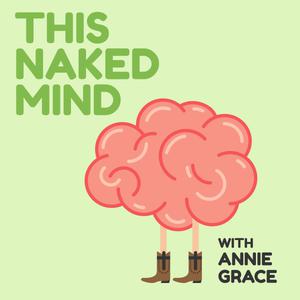 This Naked Mind Podcast
This Naked Mind Podcast
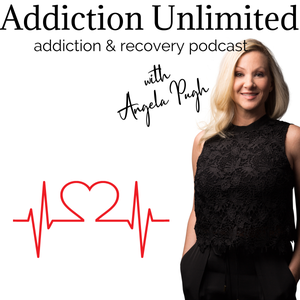 Addiction Unlimited Podcast | Alcoholism | Life Coach | Living Sober | 12 Steps
Addiction Unlimited Podcast | Alcoholism | Life Coach | Living Sober | 12 Steps
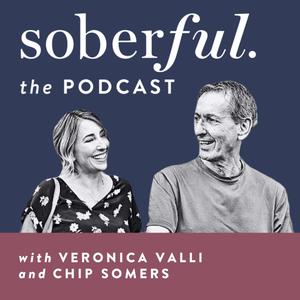 Soberful
Soberful
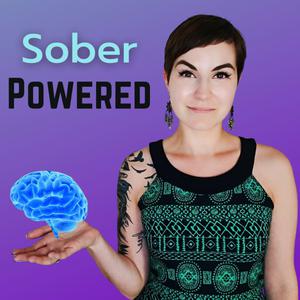 Sober Powered
Sober Powered
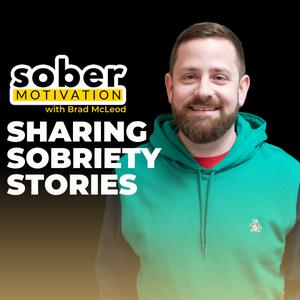 Sober Motivation: Sharing Sobriety Stories
Sober Motivation: Sharing Sobriety Stories
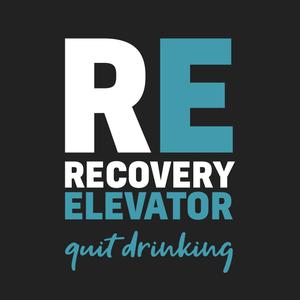 Recovery Elevator 🌴
Recovery Elevator 🌴